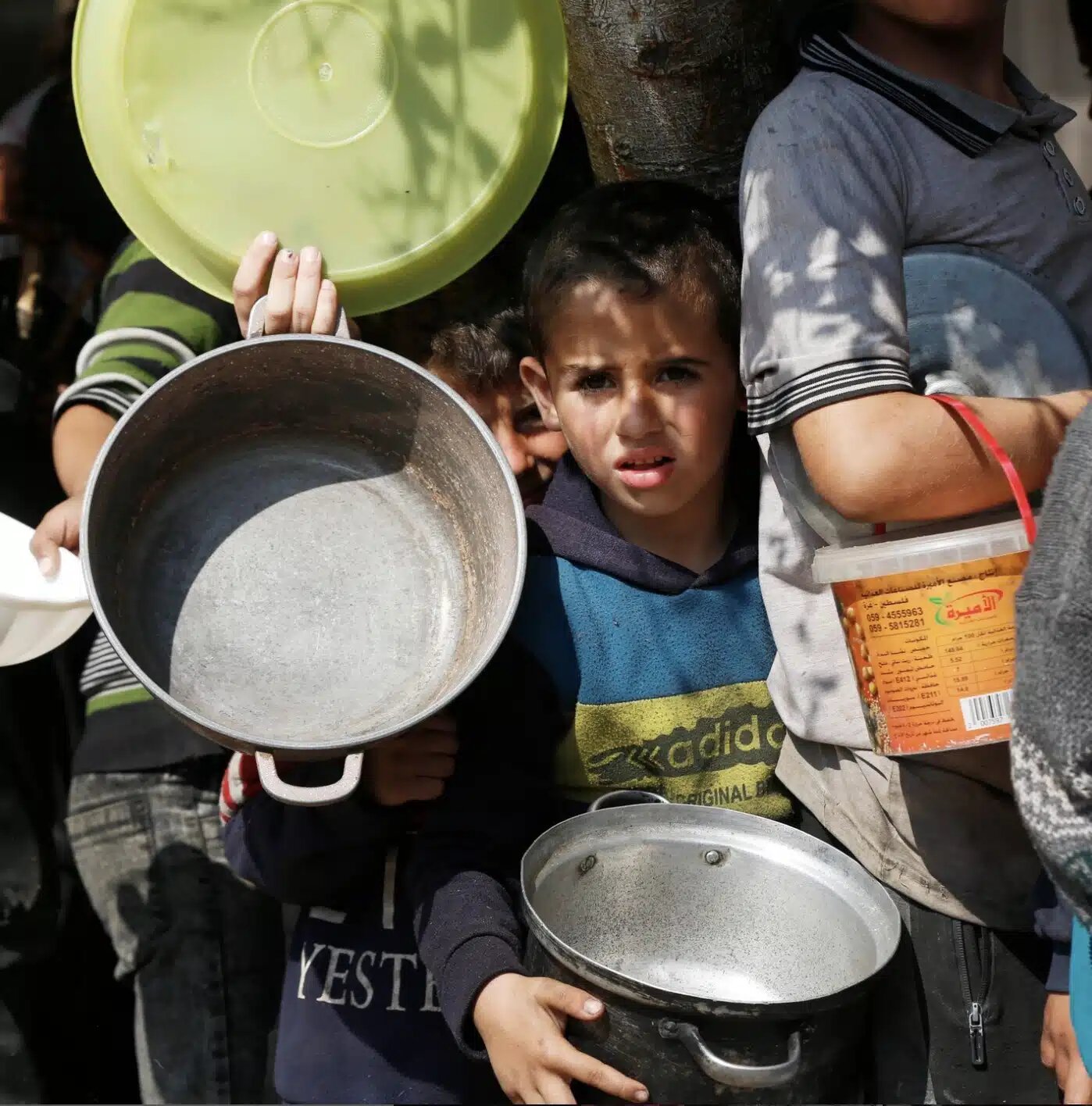
After weeks of deepening financial straits amid the deadly humanitarian conditions prevailing in Gaza, the tide may be turning positively for the United Nations Relief and Works agency for Palestinian refugees (UNRWA). Yet numerous countries that suspended their aid nearly two months ago have redirected contributions to other UN operations, like the World Food Program, as they say they await the results of UN efforts to clear the agency’s name.
Recently, the Canadian and Swedish governments announced resumption of their funding to UNRWA, following news earlier this month by the European Commission that it will not only be restarting its next tranche of payments of $57 million but also increasing aid to the agency by approximately $71 million this year.
These three donors were among the 16, led by the United States, who froze their contributions in late January after Israel accused 12 UNRWA employees of having ties to Hamas and the Oct. 7 attack, which left the country shattered. Recently, the United Arab Emirates gave $20 million to the agency, and Denmark pledged about $2.4 million.
Despite the dire need, US officials are preparing to restrict the aid permanently due to lack of support for it in Congress. The US is the biggest donor to UNRWA, providing $300 million to $400 million annually, but the Biden administration wants to see the results of the UN’s inquiry into the agency and an external review before reconsidering.
Only about $300,000 from the appropriated funds would be released to UNRWA, as more money would need congressional approval, Reuters reports. UN officials are well aware that the US funding is not likely to resume, at least this year.
“UNRWA keeps the people of Gaza alive,” said Stephen Schlesinger, the American historian and author of “Act of Creation: The Founding of the United Nations.” “The equation is a simple one. The Biden Administration must demand that Congress refinance the agency immediately.”
US Senator Chris Van Hollen (D-Maryland) spoke on the Senate floor on March 14 about UNRWA: “It is the main vehicle for distributing humanitarian assistance in Gaza. It won’t do any good to get humanitarian assistance into Gaza if you dismantle the UN organization principally responsible for delivering that aid to people in Gaza.”
While Israel offered no underlying evidence to the UN (or the US) for its claims against the 12 UNRWA workers, the agency of 30,000 staffers lost about $450 million in funding immediately. (In Gaza, the staffers total about 13,000; 10 of the accused were fired and the others were already dead, the UN said.)
Now, after weeks of global criticism and protests against the suspension of aid to UNRWA as the Israeli siege continues to inflict the enclave — including daily death tolls, displacement, rising famine and diseases as well as severe emotional distress — some donors like Canada and Sweden are coming back to the agency. Others never left, such as Belgium, France, Ireland, Norway, Slovenia and Spain. Some have even increased their contributions, like Ireland and Spain.
“Canada is deeply concerned by the catastrophic humanitarian situation in Gaza that is worsening by the hour. Help must reach civilians as quickly as possible,” said Ahmed Hussen, Canadian minister of international development, in a press release.
In the Mideast, Qatar and Iraq pledged an extra $25 million each to UNRWA. (Qatar also contributed $18 million in emergency funds in December, a Qatari diplomat told PassBlue.)
“UNRWA is the backbone of the humanitarian response in Gaza,” a spokesperson for Ireland’s Department of Foreign Affairs said in an email to PassBlue. “Not only is it actively helping those in dire need in Gaza, but it contributes to regional stability by supporting Palestine refugees also in Lebanon, Syria, Jordan and the West Bank. It cannot be replaced.”
It is estimated that the entire population of 2.2 million Gazans could face famine if more food is not delivered faster. Despite air drops and now a maritime corridor from Cyprus getting food into the enclave through a private contractor, aid is still far below needs as Israel obstructs the UN and others to deliver the goods by land.
A new route, using the Israeli Defense Forces’ 37-mile-long road running north-south along the fence on the eastern side of Gaza, was tried out this week with success, said Jamie McGoldrick, the interim UN humanitarian coordinator for Palestine, based in Jerusalem.
At dawn, the World Food Program (WFP) entered with trucks from Israel into southern Gaza and drove north to Gaza City, marking the first time the agency made it there in three weeks, bringing enough food for 24,000 people, the UN said. McGoldrick told PassBlue that another attempt will be made by WFP to use the Fence Road route, but it depends on Israel’s green light.
Widespread hunger, especially in the north, which is under Israeli control, partly triggered the “flour massacre” on Feb. 29, leaving at least 112 Palestinians dead and injuring some 760 after Israeli forces opened fire on people clamoring for bags of flour on Israeli-hired aid-convoy trucks.
On March 13, the UN reported that at least one UNRWA staff member was killed and 22 others were injured when Israeli Defense Forces hit a food distribution center in Rafah, in southern Gaza, despite the agency regularly sharing the coordinates of its facilities with parties to the war. A total of 165 UNRWA personnel have been killed since Oct. 7.
Other UNRWA donors who suspended their assistance, including Britain, Australia, Finland, Germany, Italy, Japan, Netherlands and Switzerland, refuse to say whether they will recommit until they’ve seen the results of two reports from the UN regarding the Israeli claims and a separate review of the agency itself.
Maurizio Massari, Italy’s ambassador to the UN, told PassBlue in an email that his government redirected donations to UN agencies based in Rome. “We are currently channeling our assistance to Gaza through other agencies (mainly FAO and WFP),” adding it totals about $22 million in the last three months. “Resuming assistance to UNRWA will be considered only after the results of both the OIOS investigation and the Colonna’s independent Review will be known.” (FAO stands for Food and Agriculture Organization.)
Massari was referring to an inquiry by the UN’s Office for Internal Oversight Services (OIOS) into the specific allegations of UNRWA staffers and an external audit being led by a former French foreign minister, Catherine Colonna.
Colonna, who is visiting Jordan, Palestine and Israel this week, meeting with various government and UNRWA officials for her review, is expected to deliver an interim report by Monday or Tuesday to UN Secretary-General António Guterres. Her final report is due on April 20, and the UN indicates it will be made public. The review is considered the weightier of the two exercises, as it looks into UNRWA’s neutrality and “risk management,” as Philippe Lazzarini, the head of UNRWA, said.
The OIOS’s interim report was shared with diplomats on Feb. 29.
“OIOS investigators have reviewed the initial information received by UNRWA from Israeli authorities,” Stéphane Dujarric, the UN spokesperson, said. “The investigation remains ongoing. OIOS will seek to corroborate additional information and to compare the information obtained with materials held by Israeli authorities, which OIOS expects to receive shortly.” The final report is expected to be done in April.
“The OIOS’s report has already provided a ladder on which the Swedes, the Canadians and the EU have been able to climb down and to reverse their decision to defund,” said Chris Gunness, a former UNRWA communications director and director of the Myanmar Accountability Project, a nonprofit group, referring to diplomats having seen the preliminary report and Israel having yet to present evidence to the UN about its UNRWA accusations.
Janez Lenarcic, the European commissioner for humanitarian aid and crisis management, also told European Union lawmakers in late February that his office had not received any evidence supporting the Israeli claims.
Gunness believes that part of the task facing UNRWA to regain donors while attracting new ones is to reassure them that a solid neutrality framework is in place in the agency, as it has long been accused of Hamas affiliation in various forms, which it rebuts. (Hamas is the de facto government of Gaza.)
“I hope that the external report by the former French foreign minister, soon to be available, will provide the donors with further cover if that’s what they need within their own internal constituencies to resume funding for UNRWA” Gunness said.
Individual agreements that UNRWA has reached recently with returning countries and the EU Commission reflect some reassurances to donors. The EU Commission, for example, is doing its own audit with the cooperation of UNRWA.
“Suspending the funding to a key U.N. agency over the alleged conduct of 12 employees is not the answer,” Norwegian Minister of Foreign Affairs Espen Barth Eide said in early March.
“If some members of a police department committed a crime, one would hold those individuals to account, not disband the entire police force,” Eide added. “We must distinguish between what individuals may have done and what UNRWA stands for.”











